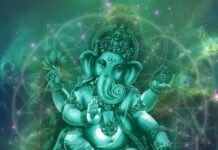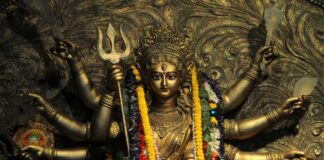Vilification of Sanatana Dharma and concerted attacks on the Hindu culture and traditions haven’t stopped even after 70 years of independence. Today Hinduism and Hindutva are under attack by a host of divisive forces. It is time Hindus and their institutions united and acted decisively to protect this great way of life.
By Prathima.G.Kulkarni
A way of life, which never opposes the beliefs, and teaching of other religions, which tells its believers to walk the path of tolerance, and which doesn’t teach people to hate, kill or torture others is Sanatana Dharma or Hinduism. Hinduism is one of the oldest ways of living being practiced today by Indians, Indonesians, Sri Lankans, and minorities in Bangladesh, Pakistan and many countries in the western world. It is a spiritual, philosophical, and scientific approach to life, which is based on the Vedas and the Upanishads.
Our constitution believes in unity in diversity. We have people with various religious beliefs and diverse worshipping patterns that include Hindus, Muslims, Sikhs, Zoroastrians, Buddhists, Christians and Jews. We believe in the concept of co existence or living together in peace and harmony. Hinduism insists that people get together during celebrations and also in times of sorrow. Deepavali, Durga pooja, and Ganesh Chaturthi are some of the festivals, which are not only celebrated by Hindus but also by others belonging to different communities.
Hindutva was anideology defined by Vinayak Damodar Savarkar when he was in Ratnagiri Prison in 1921. What prompted Savarkar to come up with the concept was the kind of discrimination that British Jail officials extended to the Hindus. This was evident by the way the British recruited Muslim staffers to monitor Hindu convicts. Right at the beginning Savarkar made it very clear that Hindutva was different from Hinduism. Hinduism was a way of life practiced by its followers known as Hindus. Hindutva was a concept derived out of India’s national character.
So, here are the major differences between Hindutva and Hinduism
Hinduism:
- Hinduism is the most dominant way of life followed in India.
- It has many sects, sub sects, traditions, beliefs, value systems and customs.
- It includes a wide spectrum of social laws and ethical norms, which govern the moral lives of, people based on Karma(deeds), Dharma (the cosmic law underlying right behavior and social order), and Gnyana (wisdom).
- Hinduism can be explained as an intellectual, spiritual, as well as philosophical way of life that carries human beings through the cycle of birth and death. It comes witha deep emphasis on leading a meaningful life so that the soul can be united with Paramatma or the ultimate reality governing the universe in the afterlife.
- One of the most distinctive attributes of Hinduism is that there has never been any attempt by anyone or any Hindu organization to spread the religion or force anyone to embrace the way of life or follow its tenets.
Hindutva:
- Hindutva was an ideology that was conceived by Savarkar and later spread by political and social groups.
- It is not a religion, which comes with numerous sects, sub sects, traditions, belief and customs.
- Hindutva is understood as an identity of the Hindu culture, which incorporates the values of Hinduism.
- Hindutva has been nurtured and popularized by one of the largest Hindu nationalist groups, the Sangh Parivar along with its numerous affiliates.
- Sangh Parivar recognizes Hindutva as a broad term consisting of everything Indian and should not include anything that is influenced by other religions from beyond the geographical borders of ancient India.
- The main aims of Hindutva include bringing about the political unity of the Hindu people and organize them as a political powerhouse.
- Hindutva aims to reunite all Hindus irrespective of their color, caste, occupation or the language that they speak.
Of late we have been seeing Hindutva being criticized by all and sundry including Muslim organizations, the Christian Church and left leaning politicians and `intellectuals’.We have also been experiencing what some refer to as Hinduphobia from the torchbearers of Abrahamic religions like Islam and Christianity besides the left liberals and radical leftists who are against the idea of India.
Let’s try to understand what the term Hinduphobia means: Hinduphobia is an anti-Hindu sentiment that gives way to a negative perception, sentiment or actions against the practice and practitioners of Hinduism. The Hinduphobes are complaining that we are enforcing things on them against their will. The anti-Hindu narratives of each of these anti-Hindu groups are often shaped according to their requirements.If the recentevents that took place in the name of CAA and NRC are anything to go by, it’s evident that the protesters termed those legislations Islamphobic and they will take away all the rights of the Muslims. In addition to shouting highly provocative slogans, they are also spreading disinformation by saying that Muslims will lose everything after these legislations come into force and they will be driven out of India. Even though the government has been clear about the provisions of the bills and repeatedly said that they won’t impact legal Indian citizens, the protests continued.The main reason for this level of protest is because of the government in power is run by BJP, which supports Hindutva.
The protests that were taking place till recently mobilized Muslim organizations, leftists and all those who are against the ideology of Hindutva. The chant “La iIahi Illallah” which translates to “There is no god other than Allah” reverberated across Shaheen Bagh in Delhi, making it clear that the Islamists do not recognize any other ideology or religion.Islamic invasions, violence and forced conversions are driven by its ideology, which doesn’t recognize the right of others to practice their religion. Today terrorism is at its peak not only in India but in other parts of the world as well, thanks mostly to radical Islam. How can any Indian forget what happened in Kashmir on the night of 19th January 1990? Houses were set on fire, Hindus were killed, and women were raped or converted. 4 lakh Hindus had to evacuate their homes and become refugees in their own country.
Even to this date, wherever the Muslim population is on the higher side Hindus go through the same ordeal they did in Kashmir. It has become a custom among Muslims that they breed like flies and then abuse Hindus and other communities. It is not only the Muslims, even Christians engage in anti-Hindu activities. After the Portuguese and later the British invaded India they coaxed hundreds of thousands of Hindus to convert. While Christians are not prone to indulge in violence unlike their Abrahamic Muslim kins , Christian Missionaries go to the poor and lure them with money, food or land and ask them to get converted.
It is high time that Hindus unite against forces trying to undermine us in our own land.Here are a few things we need to do in order to stop non-Hindus from dividing and destroying us as a political and social entity.
- We need to create awareness among all Hindus about our history, culture, values and identity
- We should emphasize on the importance of Hindus to unite socially and politically irrespective of caste differences
- Hindus should be sensitized to the misinformation perpetrated by anti-Hindu groups and lead organized movements to defeat anti-Hindu activities whether they are religious, social or political
- It is important that we spend enough time with millennials and youngsters and educate them on the importance of Hindu unity
- When incidents involving the abuse of Hindus raise your voice and do not look the other way.
- Fight for protecting Hindu interests and traditions such as our temples and our festivals and rituals
To wind up, I would like to share this story about unity. A small boy was given a stick and asked to break it. He broke it with ease. Next he was given a bundle of sticks; the boy tried really hard to break it but still failed. That is when he realized the strength of unity and working together. This is what every Indian needs to follow for a better and peaceful future.








